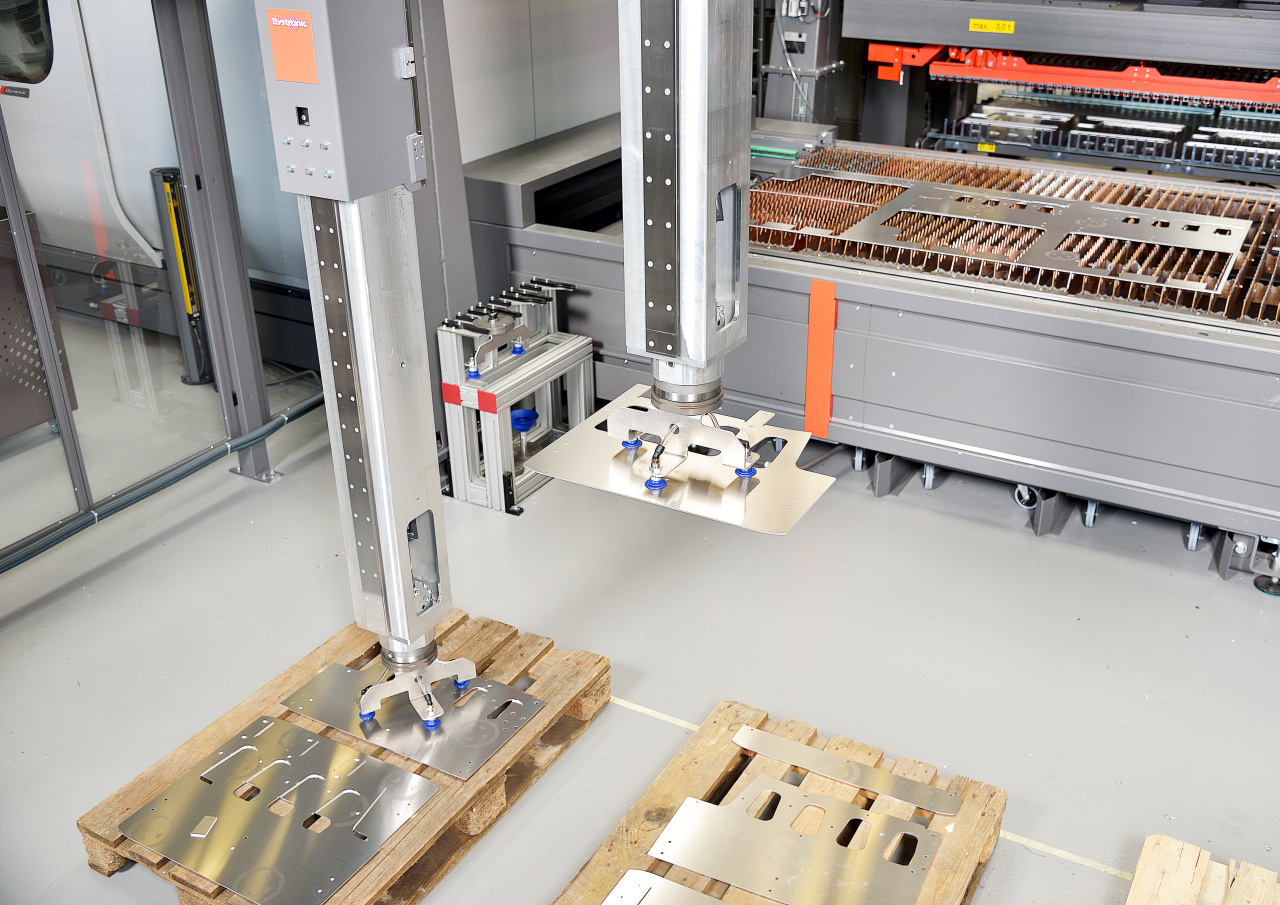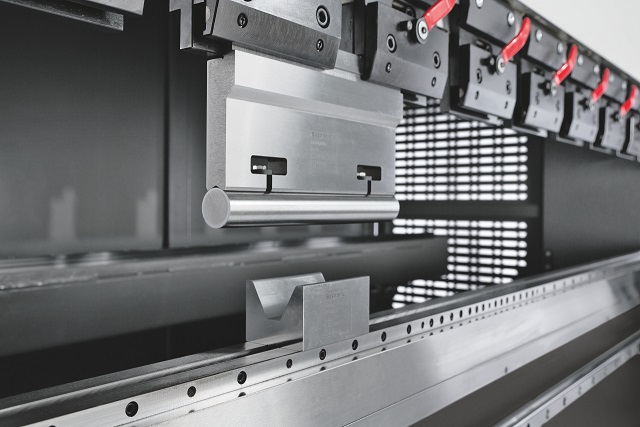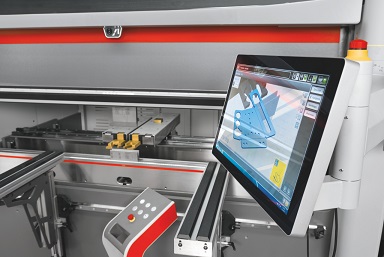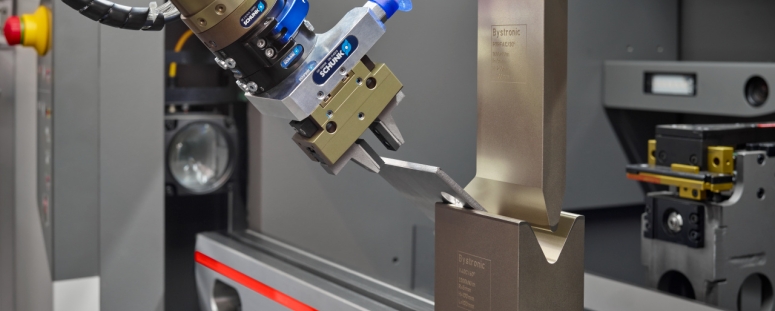The cutting and bending industry faces significant challenges in optimising production and improving efficiency. In this article, we will explore the specific issues related to the bending of sheet metal parts. We will look at the issues of flow management, tool changeover and the role of bending robots.
For this article, Gerrit Gerritsen, technical consultant for Bending and Automation at Bystronic Group, agreed to answer our questions.
The importance of flow management and sorting logistics
Flow management is a crucial aspect of industrial production, and this also applies to bending. After the cutting phase, particularly laser cutting, it is essential to organise the parts properly to facilitate the bending process, which is often the operation that follows. A 'haphazard' approach can lead to delays, errors and reduced productivity.

Copyright Bystronic Gerrit Gerritsen has come across numerous concrete examples that clearly illustrate the need to implement sorting systems and methodical organisation, in order to organise the parts as they leave the cutting machine, while at the same time organising them with a view to facilitating the next operation (essentially bending). This approach reduces the time needed to find the parts when they are bended, thus improving the fluidity of production and the productivity of the operator. Gerrit Gerritsen points out that "simple adjustments such as placing a bin close to the cutting machine to collect the parts can save a lot of time and money".
Often, careful observation of the production cycle of one or a batch of parts is enough to highlight areas for improvement, frequently without investment.
Changing tools on press brakes
Changing tools on press brakes during a production changeover is also a crucial stage that can have a considerable impact on productivity, leading to downtime for tool changes and a consequent drop in productivity.

Copyright Bystronic Gerrit Gerritsen explains how a customer contacted him to optimise its tool changeover process: "By analysing a 40-hour video of their production workshop, I identified several aspects impacting on their productivity. The operator was spending a lot of time looking for parts and filling in paperwork, which was slowing down the process. Thanks to internal logistics solutions and a reorganisation of parts management, the company was able to considerably reduce the time taken to go from one production run to another, thereby significantly improving its overall productivity."
Gerrit Gerritsen also spoke of "the importance of optimising the press brake tooling environment. If each machine has its own tool cupboard and the location of the tools is monitored by control software, the changeover time between two parts/sets can be significantly reduced. This has been demonstrated with some of our customers who have agreed to invest in solutions of this type."
The role of bending robots
Bending robots can also play an essential role in optimising industrial production for bending parts. They offer greater precision, less waste and higher productivity.

Copyright Bystronic Gerrit Gerritsen shares a concrete example: "A customer company uses a robot to retrieve parts from a storage system. Thanks to the methodical organisation of micro-logistics and the robot's precise movements, the company saves around 5 to 10 minutes each time it changes parts, which represents a saving of 20% on production time per hour."
At another manufacturer, "the use of a robot has improved the quality and repeatability of part bending, and consequently reduced waste. In addition, the robot helped to reduce the number of sick days among employees, as they were less exposed to physically demanding tasks."
Conclusion
Optimising industrial production in the sheet metal bending sector is essential to remain competitive. By focusing on flow management, efficient tool changing and the use of bending robots, companies can increase productivity and improve the quality of their work.
Technological advances in bending robots, particularly in terms of their flexibility, offer interesting opportunities for optimisation, contributing to the growth and success of companies in the sector. By drawing on the knowledge and expertise of professionals, companies can successfully meet the challenges of industrial production and position themselves advantageously.
Metal-Interface takes great care to protect your privacy: when you submit a request or ask a question, your personal information is passed on to the supplier concerned or, if necessary, to one of its regional managers or distributors, who will be able to provide you with a direct response. Consult our Privacy Policy to find out more about how and why we process your data, and your rights in relation to this information. By continuing to browse our site, you accept our terms and conditions of use.
 Press Brakes Technical article
Press Brakes Technical articlePress brake production optimisation: challenges and solutions for bending sheet metal parts
